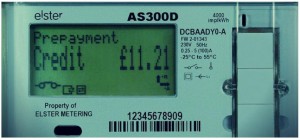Telefónica has been selected by the UK Department of Energy and Climate Change (DECC) as a Communications Service Provider in a nationwide programme to install smart gas and electricity meters in every home and small business by 2020.
A national network of smart meters will transform the energy market in the UK and is expected to deliver a net benefit to the UK of £6.7 billion through reduced energy consumption and more efficient management and deployment of energy across the country. It is estimated that a smart meter enabled industry could also save 2 billion tonnes of CO2 a year in 2020*.
53 million smart meters will be installed across the UK by 2020. Telefónica UK will provide the communications infrastructure to connect smart meters in the central and southern regions of Great Britain. The technology solution – which was selected by DECC – is based on Telefónica UK’s existing cellular network. RF mesh technology will also be used to provide connections in hard to reach rural areas.
Here are some of the benefits of smart meters:
More Information, More Control
Smart meters will empower consumers by providing them with feedback on their electricity or gas energy usage helping them to monitor, manage—and should they wish—reduce their energy consumption. Smart meters provide real time information to generate accurate billing of energy consumption, ending the practice of estimated bills and manual readings. More importantly consumers will have real time visibility of how much money they are spending on their energy consumption. This will make it easier to predict, plan and budget for future energy bills.
New Payment Options
Smart meters can be remotely reconfigured as either a pre-payment or a post payment meter allowing customers to easily change tariffs and try different payment methods. This would support the growth of “pay-as-you-go” payment giving consumers even greater control over their consumption and predictability about their energy spend. Energy retailers will be able to offer new and more flexible ways of topping up the meter. Smart meters will work with remote credit top-up facilities so consumers will no longer need to visit a shop or other physical payment points to “re-charge” their meters.
Online Billing
Consumers will be able to access their energy usage data and billing data via the internet and on smart phones and other mobile devices. We predict this shift from physical billing to online billing will mirror the shift from physical to online banking. Consumers will be able to access their data whenever, wherever they want, making it easier to change consumption behaviour and make better informed decisions about their choice of tariffs or suppliers.
Greater competition in the energy market
Smart meters will make it easier for consumers to change tariffs and switch between suppliers through efficiency improvements in supplier data and systems, and by giving consumers the opportunity to share their data with 3rd party price comparison companies who can help them find the best tariffs.
Paving the way to a Smart Grid
A UK wide of network of smart meters also has the potential to accelerate the modernisation of energy generation and help pave the way to a dynamic “Smart Grid”. The introduction of new tariff plans and detailed real-time information about consumption is expected to incentivise consumers to shift part of their consumption to off-peak periods. This will enable energy suppliers to manage demand in a more flexible and sophisticated manner reducing the costs of energy production and investment in standby generation. These cost savings could potentially be passed onto consumers in the form of cheaper energy tariffs or help to mitigate the rise in energy costs.
Boosting renewable energy
A smart grid could also enable consumers to sell back surplus energy produced by micro generation in their own homes—further incentivising and rewarding consumers who embrace renewable technology. It also encourages the greater use and integration of electric vehicles. For example fully charged and parked electric cars could be used to store electricity which could be transferred via smart meters back to energy suppliers during periods of high demand.
Accelerating the Arrival of the Smart Home
A national network of smart meters—each with their own communications hub providing wireless connectivity to every household—will also help accelerate the arrival of the “smart home” and the introduction of a range of new digital services that will help to improve people’s lives. These include connected consumer goods—eg thermostats which can be set or adjusted remotely — or security products which enable people to monitor their homes remotely.
Steve Bartholomew, Director of Public Affairs, Telefónica Digital.








